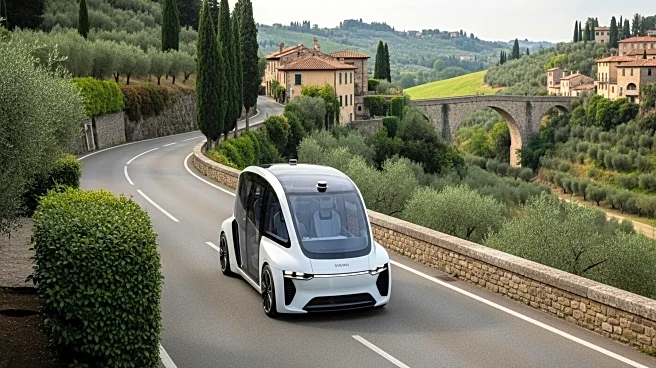What's Happening?
The European Union is exploring the integration of autonomous vehicles (AVs) into its transportation systems, with ongoing research projects funded by Horizon 2020. Despite advancements in AV technology, Europe faces challenges such as inconsistent infrastructure, patchy 5G coverage, and a lack of unified regulatory standards. In contrast, the US and China are advancing rapidly in AV deployment, with companies like Waymo and Baidu expanding their services. The EU's fragmented approach risks falling behind unless it harmonizes standards and accelerates investment.
Why It's Important?
The adoption of AVs in Europe could transform urban mobility, making cities more livable and accessible. AVs have the potential to reduce congestion, optimize traffic flow, and enhance public transport efficiency. However, the transition to AVs also poses risks, including job displacement in the transportation sector and ethical dilemmas in decision-making algorithms. The EU's ability to address these challenges will determine its competitiveness in the global AV market and its capacity to leverage AVs for sustainable urban development.
What's Next?
For Europe to successfully integrate AVs, it must develop consistent road standards, enhance digital infrastructure, and establish a unified regulatory framework. These steps are crucial for ensuring safety and fostering innovation. As AV technology progresses, Europe may need to implement reskilling programs for workers affected by automation and address cybersecurity concerns associated with connected vehicles.
Beyond the Headlines
The shift towards AVs could lead to significant changes in urban planning, with potential benefits such as reduced parking needs and increased green spaces. However, the ethical implications of AV decision-making and the potential for cybersecurity threats require careful consideration. The EU's approach to these issues will influence public perception and acceptance of AVs, shaping the future of mobility in Europe.








